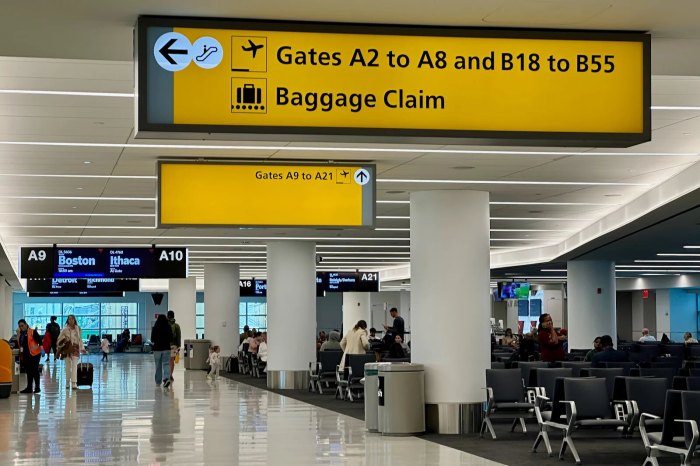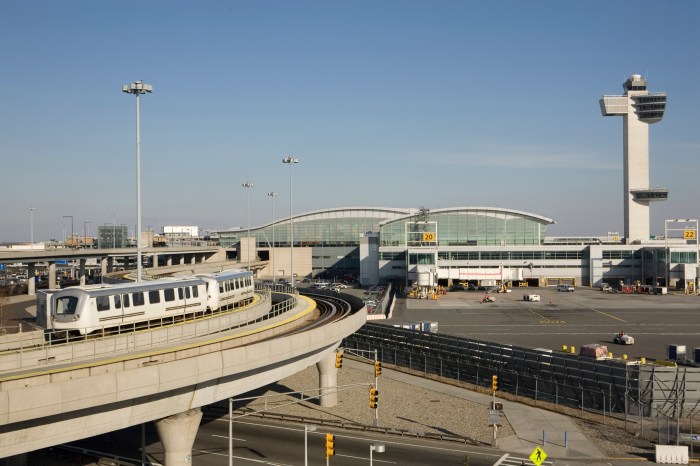By Sadef Ali Kully
For downtown Jamaica commuters like those coming out of the Parsons Boulevard subway station on Archer Avenue around 11 p.m. one recent evening, commuter vans are a convenient transportation option compared to the more expensive Uber car service, city buses or cabs.
But for the van drivers, most of whom are unaware of the billion-dollar app vehicle-for-hire service, their main priority is to make sure the city does not put them out of business.
“Uber? Nobody in my van knows Uber,” said Erwin, a commuter van driver who did give his last name. “But everybody knows us.”
Erwin was not kidding—none of his passengers knew of Uber. Half a block down the street, some young kids waiting for another dollar van knew the service but said it was too expensive for them.
For a few dollars, commuter vans take passengers from downtown Jamaica to St. Albans, Rochdale, Cambria Heights or the Rockaways.
Uber has been a hot topic since the city came to an agreement to postpone putting a cap on the number of Uber drivers until a traffic study is completed. The service has raved about its Queens numbers, saying that there are currently 8,000 Uber drivers from Queens and that it makes 600,000 trips monthly within the borough. Uber would not give specific information about the origin and destination points of the Queens trips.
While Uber grows, othe car-sharing services are also taking advantage of unmet but needed services in the outer-boroughs. Recently, the car-sharing service, car2go, announced it will bring its one-way car-sharing service to Long Island City, Astoria, Woodside and Sunnyside. The move represents an important step toward an outer-Manhattan car-sharing system representing a new mobility option for the diverse and vibrant communities, a car2go spokesman said. The company said its service area will grow from eight square miles to 44 square miles, and will add an additional 100 smart vehicles to its fleet, bringing the total fleet size in the city to 550 vehicles.
While Uber might have an impact on the yellow, green or livery taxi business, it does not appear to have been been felt by the dollar van business so far. But city legislation might be changing that. “The city knows us and they try to take us down,” Erwin said. “Who gonna take these people to Rosedale? The MTA? Ha!”
Commuter vans came into existence by chance. During the 10-day transit strike in the 1980s, New Yorkers started carpooling in large vans and they never stopped. In the ’90s, the city made commuter vans legal and today there are thousands of commuter vans across the city.
The Commuter Van Reform Act, introduced last month by Council members I. Daneek Miller (D-St. Albans) and Rory Lancman (D-Hillcrest) will combat illegally operating and unlicensed van businesses across the city.
According to Lancman and Miller, over the past year a number of shootings and car chases involving commuter vans have occurred, exposing the dangerous underbelly of this industry, legally host to 344 vans and 301 drivers from a total of 46 commuter van companies across the city. .
In the Act, the Taxi & Limousine Commission will collect data and perform an annual study on the state of the legal and illegal commuter van industry. This study will report data long missing that should assist in maintaining proper transportation standards in communities served by the vans, including eastern Queens, central and South Brooklyn, and Chinatown.
It will also raise fines for violations related to commuter vans and for its’ owners illegally operating a commuter van to $3,000 for a first offense and $4,000 for second and subsequent offenses.
Additionally, the act would require commuter-van service owners to have the same or more number of licensed drivers as registered vans. If the owner fails to produce sufficient evidence, then TLC could suspend and revoke his or her authorization.
For now, Erwin is worried about making money, not legislation.
“I gotta put food on the table, so I worry when I need to worry,” he said.
Reach Reporter Sadef Ali Kully by e-mail at skull



































